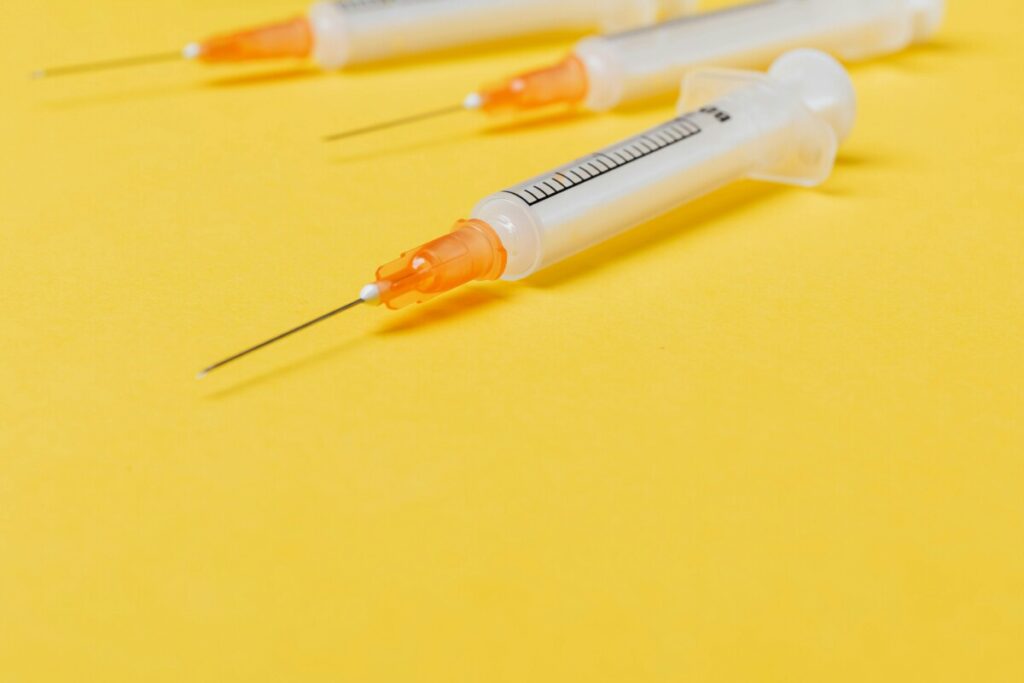“Protect Your Family: Get the Measles Vaccine Today!”

The recent resurgence of measles cases in the United States has sparked concerns about the effectiveness of vaccinations. As a highly contagious and potentially life-threatening disease, it is crucial to understand the importance of measles vaccination in preventing outbreaks and protecting individuals and communities. In this comprehensive guide, we will delve into the science and facts behind the measles vaccine, with insights from the FDA in ensuring its safety and effectiveness. It is our aim to educate and empower readers with evidence-based information, so they can make informed decisions about their health and the health of those around them.
What is Measles?
Measles is a highly contagious viral infection that is spread through respiratory droplets. It is characterized by a red rash, fever, and respiratory symptoms such as cough and runny nose. The virus can cause serious complications such as pneumonia, encephalitis, and death. According to the CDC, before the widespread use of vaccines, measles caused an estimated 2.6 million deaths globally each year. In the US, the disease has been declared eliminated, but outbreaks still occur due to travelers bringing the virus from other countries. This highlights the importance of measles vaccination in preventing its spread.
The Need for Measles Vaccination
Measles is a highly contagious viral disease that can have serious and even deadly consequences. It is transmitted through respiratory droplets and can quickly spread in areas with low vaccination rates. In fact, before the introduction of the measles vaccine, outbreaks were common in the United States, causing hundreds of deaths each year.
The best way to protect against measles is through vaccination. The MMR (measles, mumps, rubella) vaccine is highly effective in preventing measles, with studies showing a 97% protection rate after two doses. This vaccine is recommended by healthcare professionals and is required for children to attend school in the U.S.
Individuals of all ages must receive the MMR vaccine as measles can affect anyone, regardless of age. The Centers for Disease Control and Prevention (CDC) recommends that adults who have not been vaccinated should receive at least one dose of the MMR vaccine. This not only protects the individual but also helps prevent the spread of measles within the community.
The MMR vaccine is highly effective in preventing measles.
Required for children to attend school in the U.S.
Recommended for adults who have not been vaccinated.
By getting vaccinated, you not only protect yourself but also contribute to the protection of others who may not be able to receive the vaccine due to medical reasons. It is our responsibility as a community to help prevent the spread of measles and protect those around us.
Understanding the MMR Vaccine
The MMR vaccine is a combination vaccine that protects against measles, mumps, and rubella. It is a safe and highly effective way to prevent these serious infections. The MMR vaccine contains weakened or inactive versions of the viruses, which help the body build immunity without causing illness. The MMR vaccine is typically given in two doses, the first at 12-15 months and the second at 4-6 years. It is also available as a standalone vaccine for those who are not at risk for mumps or rubella. The ingredients and safety of the MMR vaccine have been extensively studied and approved by the FDA. Research has shown that there is no link between the MMR vaccine and conditions like autism or brain swelling. It is an important tool in preventing the spread of measles and ensuring the health of individuals and communities.
The Importance of Herd Immunity
Herd immunity, also known as community immunity, is a crucial aspect of preventing the spread of infectious diseases. When a significant portion of a population is vaccinated against a disease like measles, it creates a protective barrier for those who cannot receive the vaccine, such as infants or individuals with compromised immune systems. This concept is especially important for preventing measles outbreaks, as the virus is highly contagious. According to the World Health Organization, 95% of the population needs to be vaccinated to achieve herd immunity for measles. Vaccination not only protects individuals but also helps protect the community. By getting vaccinated, you are not only protecting yourself but also those around you, especially those who cannot receive the vaccine. Vaccinating against measles is a collective responsibility that benefits everyone’s health.
Support links: World Health Organization: Measles
Addressing Vaccine Hesitancy
Vaccine hesitancy is a growing concern that can have serious consequences for public health. Some reasons for vaccine hesitancy include misinformation, fear of side effects, and religious or philosophical beliefs. However, it is important to understand that vaccines are thoroughly tested and monitored by the FDA for safety and effectiveness.
The FDA and healthcare providers play a crucial role in addressing vaccine hesitancy. They provide evidence-based information and address concerns to help individuals make informed decisions about vaccination. It is also important for individuals to seek information from trusted sources and avoid relying on social media or unverified claims.
Moreover, vaccines not only protect the individual but also contribute to community immunity. By getting vaccinated, individuals can protect vulnerable populations who cannot receive certain vaccines, such as babies or those with weakened immune systems.
Overall, addressing vaccine hesitancy is vital in promoting public health and preventing outbreaks of preventable diseases like measles. Be sure to consult with your healthcare provider and trusted sources for accurate information about vaccines.
https://holisticwellnesswave.com/index.php/2024/03/11/stay-healthy-on-the-go-essential-immune-health-tips/
https://www.cdc.gov/
https://www.fda.gov/
Conclusion
The measles virus continues to pose a threat to public health, and vaccination remains the most effective way to prevent outbreaks. As we have discussed in this article, the MMR vaccine is a safe and highly effective tool in protecting individuals and communities from measles. The FDA rigorously tests and approves vaccines, ensuring their safety and effectiveness. With high vaccination rates, we can achieve herd immunity and protect those who cannot receive the vaccine due to medical reasons. However, vaccine hesitancy remains a challenge.
Healthcare providers and the FDA must address concerns and provide accurate information about vaccines. As responsible individuals, we have a role in protecting ourselves and the community by getting vaccinated. So, let’s make informed decisions based on evidence-based information and help prevent the spread of measles. Remember, vaccines are our best defense against preventable diseases. Stay informed, stay protected.
FAQs
Why is it important to get the measles vaccine?
Getting the measles vaccine is crucial because it provides immunity against the highly contagious measles virus. Vaccination not only protects you but also helps prevent the spread of measles within communities, especially among vulnerable populations such as infants and those with weakened immune systems.
Who should get the measles vaccine?
The measles vaccine is recommended for everyone, starting with infants at around 12 to 15 months of age, with a follow-up dose typically administered at 4 to 6 years old. Additionally, adults who have not received the vaccine or have not been previously infected with measles should consider getting vaccinated to ensure immunity.
Is the measles vaccine safe?
Yes, the measles vaccine is considered safe and effective. It has undergone rigorous testing and continues to be monitored for safety by health authorities. Like any vaccine, it may cause mild side effects such as soreness at the injection site or a low-grade fever, but serious adverse reactions are rare.
How long does the measles vaccine provide protection?
The measles vaccine gives long-lasting protection. It lasts a lifetime after two doses. However, immunity varies. In some cases, a booster dose may be recommended. This is especially true for high-risk groups or during outbreaks.
Can the measles vaccine cause measles?
No, the measles vaccine cannot cause measles. The vaccine contains a weakened or inactivated form of the measles virus, which stimulates the body’s immune response without causing illness. It is important to note that some individuals may experience a mild rash or fever after vaccination, but this is not the same as contracting measles.







